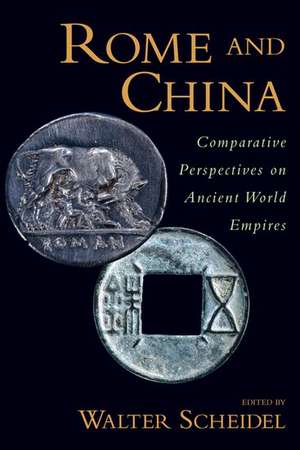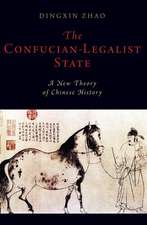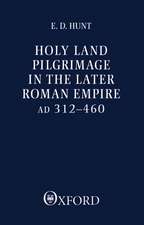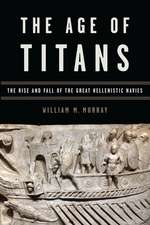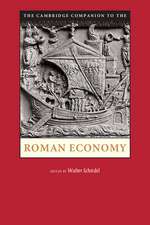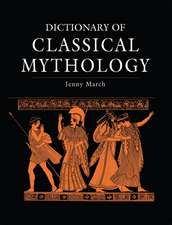Rome and China: Comparative Perspectives on Ancient World Empires: Oxford Studies in Early Empires
Autor Walter Scheidelen Limba Engleză Paperback – 10 mar 2011
| Toate formatele și edițiile | Preț | Express |
|---|---|---|
| Paperback (1) | 301.92 lei 31-38 zile | |
| Oxford University Press – 10 mar 2011 | 301.92 lei 31-38 zile | |
| Hardback (1) | 612.23 lei 31-38 zile | |
| Oxford University Press – 12 feb 2009 | 612.23 lei 31-38 zile |
Preț: 301.92 lei
Nou
Puncte Express: 453
Preț estimativ în valută:
57.77€ • 60.32$ • 47.81£
57.77€ • 60.32$ • 47.81£
Carte tipărită la comandă
Livrare economică 24-31 martie
Preluare comenzi: 021 569.72.76
Specificații
ISBN-13: 9780199758357
ISBN-10: 0199758352
Pagini: 256
Ilustrații: 2 illustrations
Dimensiuni: 155 x 231 x 15 mm
Greutate: 0.38 kg
Editura: Oxford University Press
Colecția OUP USA
Seria Oxford Studies in Early Empires
Locul publicării:New York, United States
ISBN-10: 0199758352
Pagini: 256
Ilustrații: 2 illustrations
Dimensiuni: 155 x 231 x 15 mm
Greutate: 0.38 kg
Editura: Oxford University Press
Colecția OUP USA
Seria Oxford Studies in Early Empires
Locul publicării:New York, United States
Recenzii
an admirable demonstration of the great potential that lies in comparative analysis of the Greco-Roman world and Ancient China.
Notă biografică
Walter Scheidel is Professor of Classics and, by courtesy, History at Stanford University.
